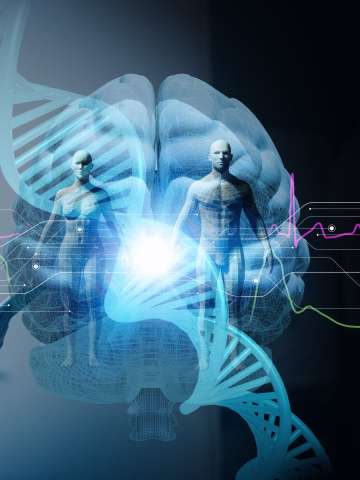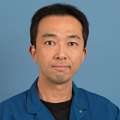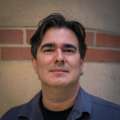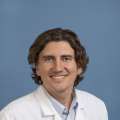Multiple Sclerosis Treatment
Experts in our Multiple Sclerosis Program offer the most advanced MS treatments.

UCLA Health excellence in multiple sclerosis care
The UCLA Health Multiple Sclerosis (MS) Program offers world-class care for patients with MS. Our team’s research focus allows us to provide novel, advanced MS treatments. Our dedicated specialists have decades of combined experience and training in the diagnosis and management of MS.
Highlights of our program include:
National designation: We are a designated MS Comprehensive Care Center. This recognition means our specialists are highly trained and experienced in exceptional MS care.
Robust research: UCLA Health doctors participate in numerous clinical trials, allowing patients access to the newest treatment options. Our top priority is finding treatments to improve disabilities in MS patients. We continually learn more about MS through this research and use this knowledge to enhance patient care in real time.
Emphasis on training: We commit to teaching the next generation of leaders in multiple sclerosis care. Our specialists train undergraduate students, graduate students and post-doctoral fellows in MS treatment.
Our areas of care
UCLA Health offers patients with MS access to additional resources. Our MS program includes:
Marilyn Hilton MS Achievement Center
Our goal at the Marilyn Hilton MS Achievement Center is to help those with multiple sclerosis live well. We provide rehabilitation, education and recreation in a group setting, with an emphasis on holistic care. We want patients to feel empowered to take control of their health and well-being.
The center offers a range of programs to help patients achieve their wellness goals, including:
- Living Well with MS Program: This program is for patients with a new MS diagnosis. The group meets weekly for 12 weeks. The curriculum blends online activities with in-person sessions focused on exercise, emotional wellness and education. Participants learn to manage stress, increase strength and take charge of their health.
- REACH to Achieve Program: This program meets weekly to offer patients with MS the tools and resources for improving or maintaining their functional abilities. The program is for those who deal with at least one challenge related to MS symptoms, such as mobility, memory changes or difficulty coping.
- Beyond Diagnosis: This half-day program is for those diagnosed with MS in the last two years. Our specialists lead this program alongside experts from the National Multiple Sclerosis Society.
- CogniFitness: This four-week program is for people with MS who have mild cognitive symptoms. Speech pathologists meet weekly with patients to help them improve memory, attention, organization and problem-solving skills.
- Exercise and MS: This 12-week exercise program helps people with MS understand how exercise can help them increase function and manage MS symptoms. To participate, patients must be able to walk 25 feet or further, with or without an assistive device such as a cane or walker.
- Free From Falls: This eight-week fall prevention program is for those who can walk easily, with or without a cane, but may still have a risk of falling. Experts help patients increase balance, strength and confidence while teaching them about fall risk factors and prevention.
The Marilyn Hilton MS Achievement Center is a joint effort of the Conrad N. Hilton Foundation, the National Multiple Sclerosis Society and the UCLA Health Department of Neurology. To inquire about any of our group programs, please call 310-267-4071.
Research
Our clinicians use a “Bedside to Bench to Bedside” approach:
- Bedside = clinical observations
- Bench = research
- Bedside = novel clinical trials
In other words, patient care informs what we research, and our research informs how we care for patients. Our research efforts have achieved global recognition through national and international awards, as well as consistent funding through the National Institutes of Health and the Conrad N. Hilton Foundation.
What is multiple sclerosis?
Multiple sclerosis is a chronic nervous system disorder. In MS, the immune system attacks the fatty substance that surrounds and protects nerves (myelin). Over time, the myelin breakdown can lead to scar tissue buildup (sclerosis). When this occurs, the nerves have trouble sending electrical signals to the brain as they should.
MS symptoms can vary significantly. Some people have minor symptoms, while others have frequent and severe symptoms. MS may cause:
- Difficulty concentrating
- Dizziness
- Fatigue
- Muscle weakness
- Numbness or tingling
- Speech changes
- Tremors or involuntary muscle movements (spasms)
- Vision changes, such as double vision or color distortion
Multiple sclerosis tests and treatments we offer
Whether you have symptoms that could be MS or you’re already diagnosed, our experts can help. We provide a full range of services to diagnose MS, manage symptoms and improve your quality of life.
MS diagnosis
To diagnose MS, patients usually have a range of tests. Our specialists may use:
- Blood tests to rule out conditions that could have symptoms similar to MS
- Evoked potential tests to check if certain areas of the brain send or receive sensory messages more slowly than usual
- MRI to check the myelin breakdown or scar tissue on the brain or spinal cord
- Spinal tap (lumbar puncture) to check cerebrospinal fluid (CSF) to rule out an infection or check for the antibodies that could point to an MS diagnosis
- Visual field tests to check for changes in eyesight
MS treatment
There’s no known cure for MS. But our specialists can help people with MS manage symptoms and reduce and treat flare-ups. MS treatment may include:
- Medications: Some medicines reduce inflammation and slow the progression of MS. Others, such as steroids, can help speed recovery from an MS flare-up.
- Rehabilitation services: Many people with MS benefit from physical therapy or occupational therapy. A physical therapist can help you learn to use assistive devices such as canes or walkers. They also help you improve motor skills, muscle strength, mobility, balance and function. An occupational therapist can teach techniques to help you perform daily activities and enhance your independence.
Director
Faculty
Clinical staff:
- Mike Montag, B.S., M.S., trial coordinator and neuroimaging technician in MS.
- Ynez Tongson, B.S, patient coordinator, [email protected]
Post-doctoral fellows:
- Lisa Golden, Ph.D., neuroprotection and repair of cognitive disability in MS.
Graduate students:
- Ashley Loureiro, B.S. neuroprotection and repair of cognitive disability in aging and MS.
- Cassandra Meyer, Ph.D. candidate, neuroimaging in MS and aging.
Contact us
Call 310-794-1195 to request an appointment with a multiple sclerosis specialist at UCLA Health.
Find your care
We offer a full range of services to help people with MS live their highest quality of life. To learn more about our services, call 310-794-1195.




